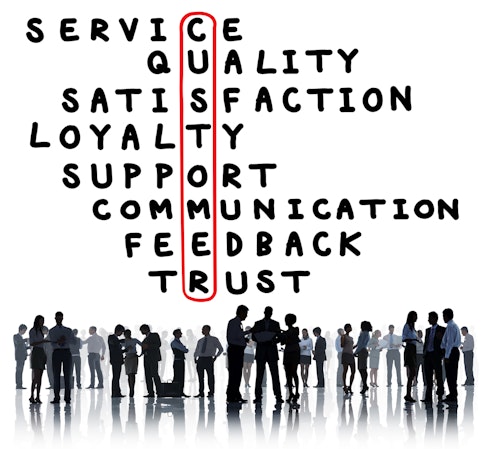Dealership Culture: Make Trust Your North Star

Bolster your dealership’s culture with clarity, consistency and accountability to succeed in a multi-channel world
According to the Guinness Book of World Records, Rory Blackwell, the ultimate one-man band, played 108 different musical instruments simultaneously on May 29, 1989 in Devon, England.
Fortunately, a car dealership is the opposite of a one-man-band. A dealership is full of skilled, well-trained and dedicated professionals, all ready to do their part to help the dealership succeed. That said, I believe the most essential instrument required for them to play in harmony is trust.
Yet building trust in a dealership is a lot easier said than done. It can apply (or not) across the board to ownership, managers, employees and customers.
Trust can be earned, of course, but it also can be easily or quickly lost.
Culture Matters
I’ve been thinking a lot about trust after listening to a recent podcast hosted by Troy Scheer with Brian Kramer, the General Manager at Germain Toyota of Naples, in which the two discussed the important role played by culture in a dealership. A running theme throughout the podcast was the importance of a culture built on trust.
A dealership must first define its culture, however, and I believe the touchstone for any dealership culture should be the customer experience. The challenge is to bring sales, finance and service together as a team – whether online or in the store -- to seamlessly provide the desired excellent experience to each customer.
This united effort is complicated by the need to balance in-person and digital contacts with customers. An employee who is busy in the showroom meeting and greeting customers is unavailable, at the same time, to respond to digital leads. Yet both types of communication are essential and must be made. You can’t afford to ignore customers or make them wait too long.
That’s why the best dealership cultures inspire everybody up and down the line to do whatever it takes to deliver a positive customer experience.
Getting there with a minimum of friction, however, requires management to take three steps: clarify what’s expected, be consistent in its application and hold everyone accountable.
Clarity Means No Surprises
When buying a vehicle, I’m always mystified why the salesperson doesn’t walk me over to their service department and personally introduce me to someone in sales to initiate a more long-term relationship. Those of us in the business know that typically parts and service can generate 49 percent of a dealership’s profits.
My guess is that the salesperson is focused on the short-term and is already thinking of his or her next sale, instead of what’s best for the customer or dealership. This particular salesperson may not fully understand or appreciate or trust the store’s culture.
Automotive retail can be a pressure cooker, but clarity actually diffuses the pressure because everyone knows what’s expected.
Consistency Means Everyone Contributes
Whether your customer-first motto is in your mission statement, your store, or on your website, you must consistently practice what you preach.
As an owner or manager, you should encourage your employees to take risks and try things without fear of repercussion.
If you tell customers that you want them to be customers for life, you need to prove that by standing behind that statement with products like Lifetime Powertrain Warranties. Many of the dealerships we work with offer lifetime maintenance and customer loyalty programs in the finance office and train their service technicians on how to create a first-rate experience to keep service customers coming back time after time.
Consistency means backing your mission statement up in every department across every experience.
Communication Means Accountability
This is the attribute where the rubber hits the road, hard choices are made and, ultimately, trust is built. Make your people accountable for their actions, and allow them the privilege of learning from their mistakes. Nobody wants to be second-guessed or blindsided, of course, especially during the course of a busy day.
Likewise, you don’t want employees running to management to make a decision they could and should make. If they know you have their back, they’ll have yours.
Above all, keep it transparent. Nothing undermines a culture of trust more than a manager who allows a closed-door meeting to talk privately about somebody else.
A Culture Where Customers Win
Making trust the centerpiece of your dealership’s culture turns former roadblocks into speed lanes.
More importantly, it enables customers to believe in your brand, because they know your entire team is looking out for what’s best for them. Customers are listened to, calls are followed-up, questions are answered. And you can reward their trust by offering them extra benefits for doing business with you, such as lifetime powertrain warranties.
I’d like to finish up with one of my all-time favorite quotes from legendary coach Vince Lombardi, who says, “Winning is not a sometime thing; it’s an all the time thing. You don’t win once in a while, you don’t do things right once in a while, you do them right all of the time.”
There’s no better way I can think of to describe building a lifetime value culture across your dealership that will last the test of time – do it right all of the time.
Tags:

authored by
David Adcock
David Adcock comes to Binary Automotive Solutions with more than two decades of industry experience, working with automotive dealerships as well as manufacturers. Early in his career, Adcock served as a national sales trainer for Pat Ryan and Resource Automotive Group and later leveraged that experience into helping dealerships all over the country to develop the employee training programs necessary to drive a dealership’s financial growth.
Get Curated Insights
Content worth the click
Related Articles












